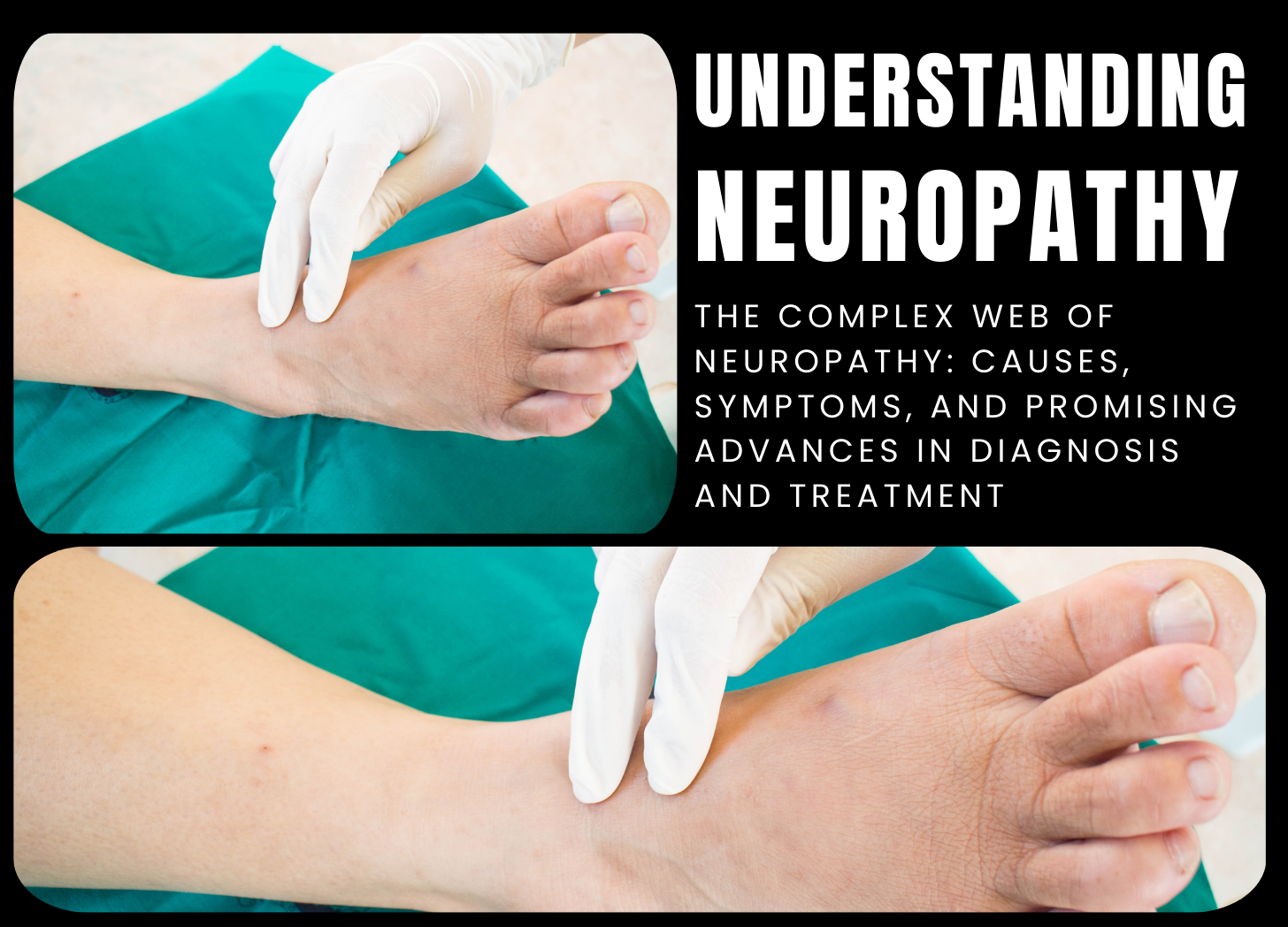Contact Us
Contact Us

Neuropathy refers to a group of disorders characterized by nerve damage that causes pain, numbness, or weakness. This complicated issue necessitates a thorough investigation into its causes, symptoms, potential treatments, and supportive care measures that are critical for persons suffering with this frequently debilitating condition.
Damage to the peripheral nerves causes communication between the brain, spinal cord, and the rest of the body to be disrupted. This disorder can be caused by a variety of circumstances, which results in a wide range of symptoms and presentations.
Neuropathy symptoms include numbness, tingling, burning sensations, muscle weakness, and pain, which frequently affect the hands, feet, or other body parts. Neuropathy can manifest in a variety of ways, including diabetic neuropathy, peripheral neuropathy, autonomic neuropathy, and others, each with its own set of symptoms and causes.
Diabetes, infections, traumas, autoimmune illnesses, certain drugs, and metabolic abnormalities are among causes that contribute to neuropathy. Furthermore, lifestyle variables such as alcohol misuse and nutritional inadequacies might raise the likelihood of getting neuropathy.
Neuropathy is diagnosed through a thorough assessment of symptoms, medical history, and, in some cases, nerve conduction testing or imaging studies. Treatment goals include symptom management, slowing the course of nerve injury, and addressing underlying causes. This may include pain medications, physical therapy, lifestyle changes, and addressing the underlying problem that is producing the neuropathy.
Managing neuropathy frequently entails lifestyle changes such as eating a balanced diet, exercising regularly, avoiding alcohol, and addressing underlying illnesses such as diabetes. Supportive care, such as pain management strategies and assistive technologies, is critical in enhancing the quality of life for people with neuropathy.
Ongoing research aims to investigate novel therapeutics, improved diagnostic tools, and treatments that address the underlying causes of neuropathy. Understanding the biology of nerve injury is improving, which bodes well for more effective care and potentially disease-modifying therapeutics.
Neuropathy is a difficult condition that impairs nerve function and causes discomfort and agony. While controlling neuropathy entails addressing symptoms as well as underlying causes, recent research holds promise for new treatments, providing hope for those suffering from this sometimes agonizing condition.
References:
American Academy of Neurology. “Understanding Neuropathy.” www.aan.com/patients/neurology-a-z/neuropathy.
Callaghan, B. C., et al. “Diabetic neuropathy: clinical manifestations and current treatments.” The Lancet Neurology, vol. 11, no. 6, 2012, pp. 521-534.
National Institute of Neurological Disorders and Stroke. “Peripheral Neuropathy Fact Sheet.” www.ninds.nih.gov/Disorders/Patient-Caregiver-Education/Fact-Sheets/Peripheral-Neuropathy-Fact-Sheet.
Centers for Disease Control and Prevention. “Neuropathy.” www.cdc.gov/ncbddd/autism/addm-community-report/diagnosis.html.
Post a Comment